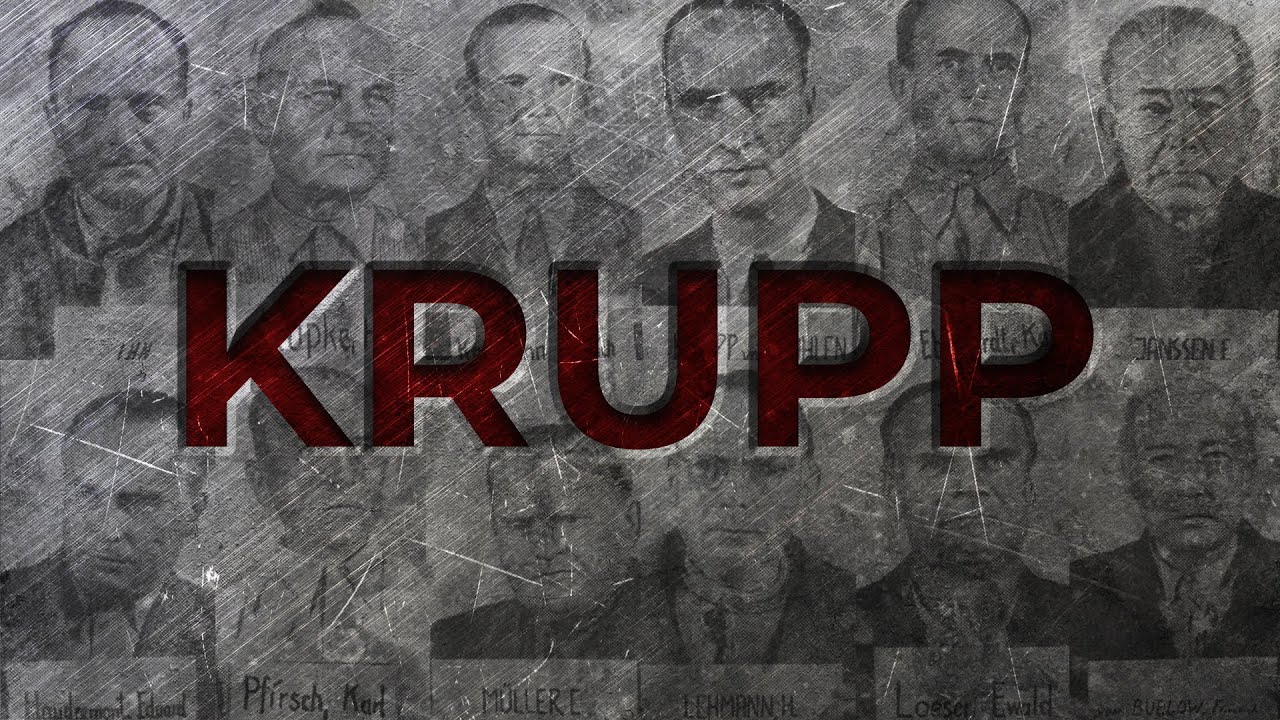The same report goes on to say, “When in 1933 we were again called upon to manufacture war material in large quantities, we were immediately ready to do so[.]” The head of the company, Gustav Krupp, held a similar position in those years. He writes in 1941: “If Germany should ever be reborn, if it should shake off the chains of ‘Versailles’ one day, the Krupp concern had to be prepared again. […] I wanted and had to maintain Krupp, in spite of all opposition, as an armament plan—although for the distant future.”
However, the prosecution emphasizes that Krupp made its decision not only for patriotic reasons but also in the expectation that the future buyer will reimburse all losses incurred. In his address to the High Command of the German Armed Forces in 1940, Krupp firm writes: “The following details are to provide the justification for the increase in sales prices which the firm Krupp needs for its manufacture[.] Without government orders, and merely out of the conviction that one day Germany must again fight to rise, the Krupp firm has, from the years 1918 to 1933, maintained employees and workshops and preserved their experience in the manufacture of war materials at their own cost, [and] only this procedure made it possible at the beginning of the rearmament period to produce straight away heavy artillery, armor plates, tanks, and such like in large quantities. The material losses which the Krupp firm is bearing amount to several hundred millions of marks.”
Finally, it must not be thought that Krupp stood alone or unsupported in the decision taken by his firm. As we will see, the chiefs of the German Army and Navy played exactly the same game and worked very closely with Krupp. So did various leading political figures of the Weimar Republic. Joseph Wirth, Chancellor of the German Republic in 1921 and 1922, wrote a letter to Gustav Krupp in 1940, in which the following appears[:]
I recall with satisfaction the years of 1920 till 1923, when together with Mr. Direktor Dr. Wiedtfeld both of us were able to lay new foundations for the development of the German armament technique through your great and most significant firm. Mr. Reich President von Hindenburg, as is well known, had been informed of it. His reaction also was very creditable, [and] your most respected firm was assured of 10 years’ service for the government on account of my initiative as the Reich Chancellor and Reich Minister of Finance, by releasing considerable means of the Reich for the preservation of German armament technique.”
[…]
Statement prepared by Walter Funk […] STRASSER, SCHATZ, REINRICHSBAUER and his friends in industry, especially the leading personalities of the Verein fuer die bergbaulichen Interessen im Rheinland und Westfalen [Association for mining interests in the Rhineland and Westphalia] strengthened me in my decision to enter the NSDAP in order to persuade the Party to follow the course of private enterprise. At that time the leadership of the Party held completely contradictory and confused views on economic policy (Feder, Wagner, Keppler).
I tried to accomplish my mission, by personally impressing on the Fuehrer and the Party as a whole, that private initiative, self reliance of the businessman, i.e. the creative powers of free enterprise, be recognized as the basic economic policy of the Party. The Fuehrer personally stressed time and time again during talks with me and industrial leaders, to whom I had introduced him, that he was an enemy of state‐economy and of so‐called “planned economy” and that he considered free enterprise and competition as absolutely necessary in order to gain the highest possible production.
My industrial friends and I were convinced in those days that the NSDAP would come to power in the not too distant future and that this had to be if communism and civil war were to be avoided.
At that time (early 1931) I learned of the existence of friendly relations between GEHEIMRAT DR. EMIL KIRDORF, the leading personality of the Ruhr coal industry, and the Fuehrer. […] Through KIRDORF and later through FRITZ THYSSEN the Fuehrer was introduced to influential Rhenish‐Westphalian industrial circles who supported him and the party financially. These payments as far as I learned, had not amounted to one million Reich Marks by 1931–32. I do not know how much was contributed previously nor how much was given by other circles.
At any rate the amounts were trivial compared to the amounts running into the millions with which industrial circles continuously supported other parties, especially the “Deutsche Volkspartei”, “Deutschnationalen”, and “Demokraten”. The Social‐Democrats were mainly supported by banks and concerns whose directors had personal connections with Social‐Democrat party officials[.]
Click here for events that happened today (April 27).
1941: The Wehrmacht entered Athens.
1945: The Third Reich’s last formations withdrew from both Finland to Norway, thus ending the Lapland War. As well, Italian partisans in Dongo arrested Benito Mussolini while he was attempting escape disguised as a Wehrmacht soldier.


